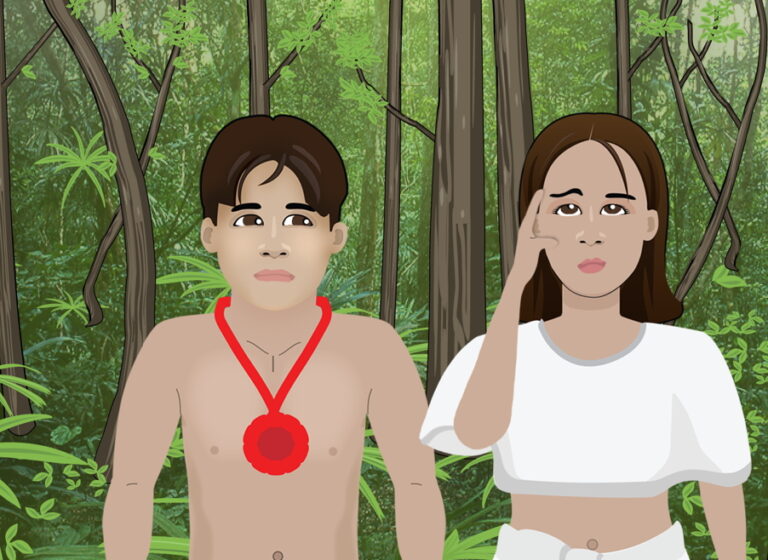“At some point, the world decides it has no more use of him. Later, he decides he has no more use for the world.”
– Maybe Erik Erikson
“And I noped right out of there.”
– One of my daughters
You might, reasonably, be wondering what these quotes have to do with success as an older entrepreneur. Having started companies in my 30s (R & R Consulting) , 40s (Spirit Lake Consulting, Inc.) and 50s (The Julia Group, and 7 Generation Games) and a non-profit in my 60s (Strong Mind Strong Body Foundation), I have had the chance to see the strengths and weaknesses of starting a new enterprise at different points in one’s lifespan. Let’s look at the pros and cons.
For those of you who need the TL;DR because you are old and going to die soon – older entrepreneurs make up for their lack of youthful energy by being better at identifying the opportunities that are less likely to be useful in the near to mid-term future. Then, they nope right out of those.
Senior Entrepreneur Advantage #1
When I started my first company, I had a full-time job as a professor and three children in elementary and preschool. When I started 7 Generation Games, my three older daughters were already successful adults and my youngest child was in a college preparatory boarding school. She was old enough to drive herself to soccer practice and home on weekends. Unlike when I started my first and second companies, I was not spending 10-20 hours each week driving children to school, sports and music lessons.
Score: Old age – 1, Youth – 0
Senior Entrepreneur Advantage #2
After almost 40 years in business, I have a lot of knowledge and resources. Some would call it experience. I’ve written grants funded for millions of dollars, programs to do propensity score matching in SAS, Javascript games, PHP code for databases, articles for academic journals.
We come out of the womb knowing very few things. Whether it is how to code a random number function in Javascript or how to submit a grant through eraCommons, there are a million things we need to learn how to do for the first time. I’ve learned a lot of them.
Score: Old age – 2, Youth – 0
Senior Entrepreneur DISAdvantage #1

It’s not all smiles and roses. Anyone who believes they have the energy they had as a young person is delusional or wasted their youth being a couch potato. In my twenties, I was the world judo champion. Physically, I am so far from that point now, I can’t even see it from here. I can attest the quality of work I did at 4 a.m. pulling an all-nighter was not the best, but it got done. Now, after midnight or 1 a.m., I’m turning in and tackling it again tomorrow after a good night’s sleep and my morning coffee.
Score: Old age – 2, Youth – 1
Senior Entrepreneur DISAdvantage #2
Ageism – While some people may hate me for saying this and others will be very surprised, I will admit there is something to the assumption that older people will not be the first to adapt the latest technology. One reason for that is that, if it is going to take me six months to a year to be really expert in something, I’m going to ask myself two questions:
- Is this actually going to be around three years from now? Think NFTs, Google Glass, Windows phones.
- How long am I going to be around relative to the time it takes me to learn? If I’m not going to be using this five years from now, what’s the point in spending two years to develop expertise?
You might rightly argue that it shouldn’t take two years to learn a new technology, and that is absolutely correct if you could just dedicate yourself to that and not be teaching classes, speaking at conferences, writing code, attending meetings. To be good at a programming language, not just able to do a “Hello, World” or basic website level of development takes some time and that time needs to be wrapped around all of my other responsibilities.
Maybe some people will work productively in their 80s – for all that gets talked about his age, Joe Biden is flying around the globe meeting with world leaders, hosting White House dinners, etc. Good for him. I’m not going to do that. I’ve got another five years of hard-driving this company and then I’m doing something else.
I’m only giving the young puppies half a point here because the odds are probably greater that I will stick around five years than that twenty-something you are funding for his startup app to book glamping sites.
The secret to success as an older entrepreneur – Saying No
Here’s what I have learned – since I have less energy, I have to prioritize more than I did in my youth. Here are some things I have said no to in the last quarter.
- Serving on a committee on research next year
- Volunteering to teach judo next school year
- Teaching graduate courses this fall and next spring
- More conference speaking invitations than I can count
- Just about every networking event.
- Consulting contracts
When I was younger, I thought I should accept every contract that came along because what if I didn’t have more work in the future. At first, I was thrilled to be invited to speak at conferences because, hey, validation, I’m smart! Also, it was a chance to get in front of people and let them know about the work we are doing making educational games.
The fact is, when I was younger, I had a lot more energy to spare, so I probably did not focus as much as I should. To be fair to my younger self, I also knew less, knew fewer people, had fewer contacts and was less sure what direction my future would be taking, so I cast a wider net.
Now, before I agree to anything, I ask myself these questions:
- How likely is it that this will benefit us in terms of customers, investors or moving the development schedule forward?
- Is there someone else in the company who can do this?
No, I don’t have the energy to work all night like I once did. What I do have is more knowledge of what is worth working on and what is worth me working on. The result is, I may put in fewer hours but I get more results that move us toward our goals.
Now, I need to get back to finishing the next blocks.


